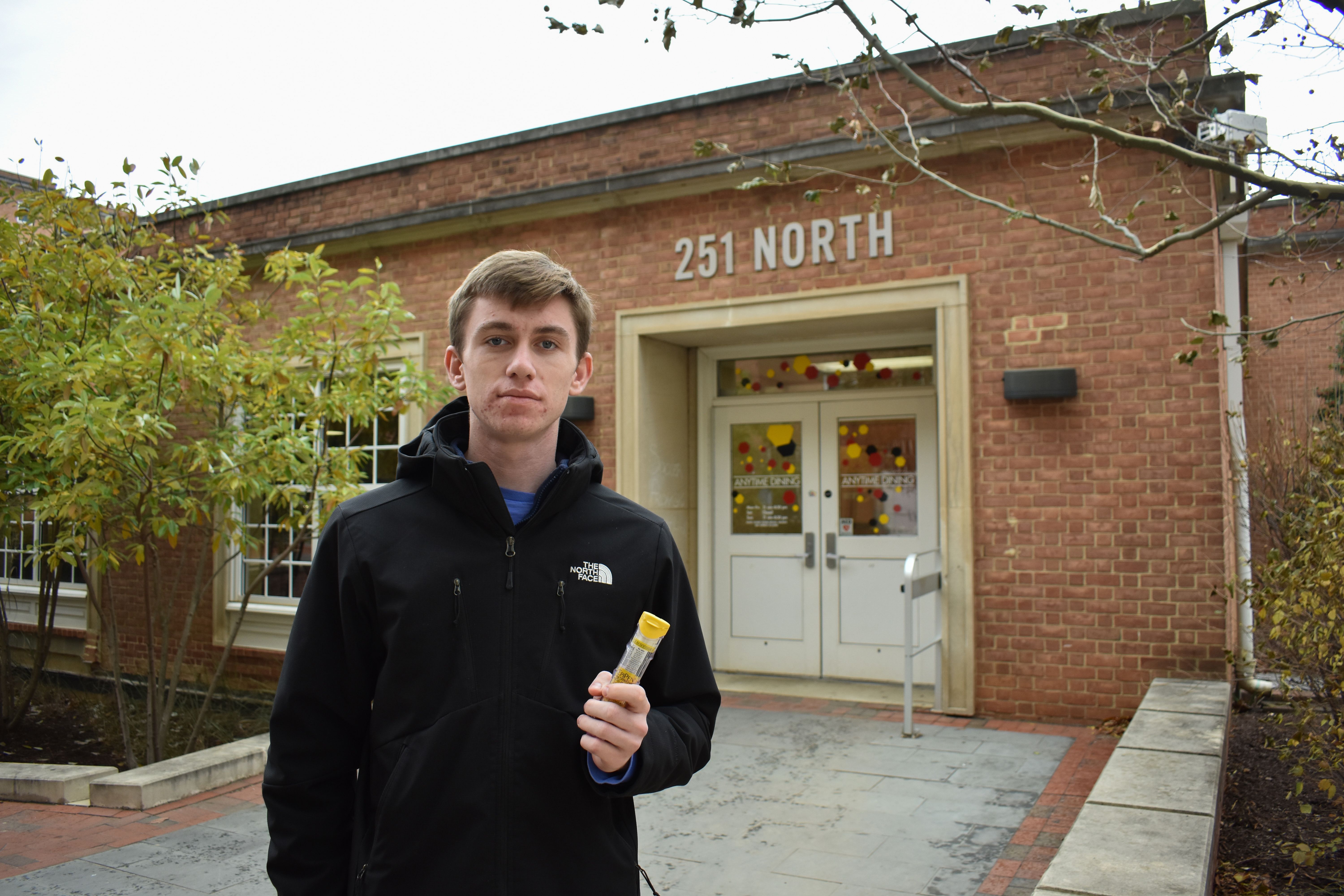The University of Maryland’s dining halls may have EpiPens available by the end of the school year.
Dining Services — in partnership with the University Health Center — are aiming to have the initiative in place by spring break, Dining Services Director Colleen Wright-Riva said. It would likely cost about $1,000 per dining hall, as each would carry several two-pack EpiPens, she added.
“You’d probably be shocked and a little worried about the students that don’t carry their EpiPens,” Wright-Riva said. “So this is something that’s really important to me.”
Of the close to 9,000 students on dining plans, 130 students made Dining Services aware of their allergies, about 30 of which are life-threatening, Wright-Riva said.
Christopher Heller, a freshman enrolled in letters and sciences, said he’d like to see the initiative come to fruition. Heller has a peanut allergy, and while he keeps an EpiPen in his backpack, he said he doesn’t always remember to grab it before heading to the dining halls.
[Read more: A UMD student found a caterpillar in her dining hall lunch]
“Considering I’m not as responsible as I should be, and I don’t really carry it around on me if I’m not going to class or something, it would make me feel a lot better,” Heller said. On May 8, Gov. Larry Hogan signed the “Emergency Use Auto–Injectable Epinephrine Program,” which allows “institutions of higher education to obtain and store auto–injectable epinephrine under certain circumstances,” into law, and it went into effect on Oct. 1.
“The idea of having EpiPens in our dining halls has been on my mind for years, but there’s been no legislation to allow it,” Wright-Riva said.
When a person is exposed to an allergen to which they are hypersensitive, their immune system releases a rush of many different chemicals that causes anaphylaxis and, in turn, can put their body into anaphylactic shock. This often causes trouble breathing and a sudden drop in blood pressure, according to the Mayo Clinic website.
An epinephrine injection — as an EpiPen gives — is the only effective form of treatment for anaphylactic shock.
[Read more: This UMD program is offering dining hall swipes to food-insecure students]
Freshman finance major Charles Talucci, who is allergic to tree nuts, experienced anaphylactic shock for the first time when he was around 16, after he came home from school one day and ate a cashew. He hadn’t known that he was allergic, and 15 minutes after eating it, he began struggling to breathe.
Talluci said the initiative would make him feel more comfortable on campus, since he typically only keeps his EpiPen in his dorm room.
“Sometimes the dining hall offers very diverse food,” Talucci said. “So, sometimes if I was feeling adventurous and wanted to try something — and I don’t always read the ingredient lists — if I eat something and my throat starts to feel scratchy, I know that I won’t have to sprint back to my dorm room for an EpiPen because they’ll have one there.”
Before moving forward with the initiative, Dining Services plans to train staff on how to properly administer epinephrine injections in accordance with the law’s requirements. The bulk of the training will take place over winter break, Wright-Riva said.
“I would love to see all three of our dining halls have our teams trained, and have enough people trained,” she said. “You’ve got to have two people at any time we’re open. [And] we’re open 17 hours a day.”
Officials are working to craft protocol, and make sure staff members know how to recognize anaphylactic shock, Wright-Riva said.
“It doesn’t solve all problems, it doesn’t guarantee anything,” Wright-Riva said. “Mistakes can happen all of the time by a student, by us, because we are all human beings. But, it gives us one more safety net.”
CORRECTION: Due to an editing error, a previous version of this story misspelled Dining Services Director Colleen Wright-Riva’s name. This story has been updated.



